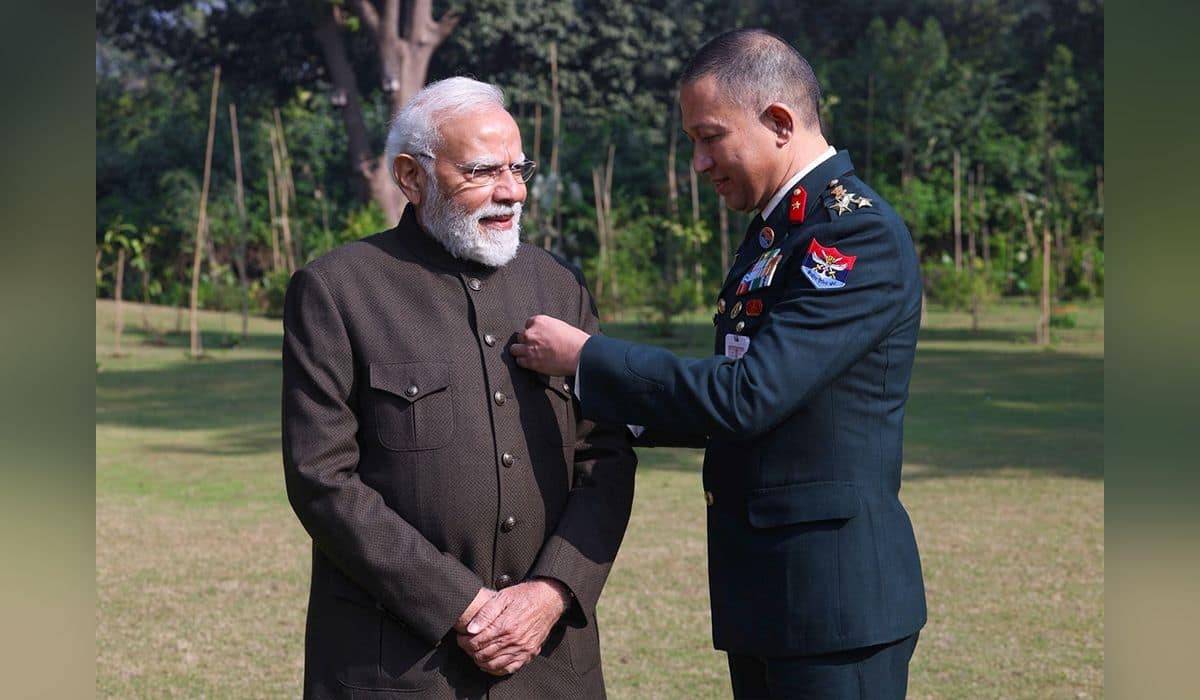The Prime Minister Shri Narendra Modi today said that amid rising population and increasingly fragmented land-holdings, the need of the hour for the nation is a second green revolution without any delay, which could only happen in eastern India.
He was speaking after laying the Foundation Stone of the Indian Agricultural Research Institute at Barhi in Jharkhand, and witnessing the exchange of an MoU between the Government of India and NMDC Ltd for setting up a new Steel Plant.

The Prime Minister also called upon farmers to raise the level of pulses production in the country, to help make India self-sufficient in pulses. Invoking former Prime Minister Shri Lal Bahadur Shastri’s call “Jai Jawan, Jai Kisan,” Shri Narendra Modi asked every farmer to try and grow pulses on a part of his land. He also mentioned steps being taken by the Union Government for the pulses sector. He said pulses were an important part of the diet of the common man.
The Prime Minister said he was happy to note that a large number of people from South Bihar were present at the function, because the Institute whose foundation was being laid today would serve that region as well.

The Prime Minister said Indian agriculture has been lagging in several areas including inputs, irrigation, value addition and market linkages. He said the Union Government was committed to modernizing Indian agriculture and making it more productive. He said this required proper allocation of resources and training.
Noting that population was rising and land holdings are getting fragmented, the Prime Minister emphasised the need to enhance productivity to ensure the nation’s food security as well as ensure good income for farmers.

Towards this end, the Prime Minister said proper research was required in all agro climatic zones of the country. This would ensure best results, as well as greater acceptability among farmers. He said this required the spread of agricultural research and education in various regions.
The Prime Minister said the need of the hour was a second green revolution, without any delay, in eastern India. He said that the Union Government was therefore committed to the development of this region. He mentioned the setting up of fertiliser plants, which would ensure proper availability of fertilisers in the region.
Shri Narendra Modi mentioned the Government’s programme to provide soil health cards to all farmers. This too, he mentioned, could provide a source of employment to youth, through soil testing laboratories.

The Prime Minister said animal husbandry and fisheries were equally important for the agriculture sector. He laid stress on the importance of raising productivity in the dairy sector. He said the Government had decided to pay special attention to the dairy sector in Jharkhand. He suggested that one district in each state could be developed as a honey producing district. He also mentioned the Pradhan Mantri Krishi Sinchai Yojana, to provide adequate irrigation to farmers. Recalling his mantra of per drop, more crop, the Prime Minister said micro irrigation helped raise productivity and incomes for farmers.
The Governor of Jharkhand Smt Droupadi Murmu, the Chief Minister of Jharkhand Shri Raghubar Das, the Union Minister for Agriculture Shri Radha Mohan Singh and the Union MoS for Finance Shri Jayant Sinha were present on the occasion.














